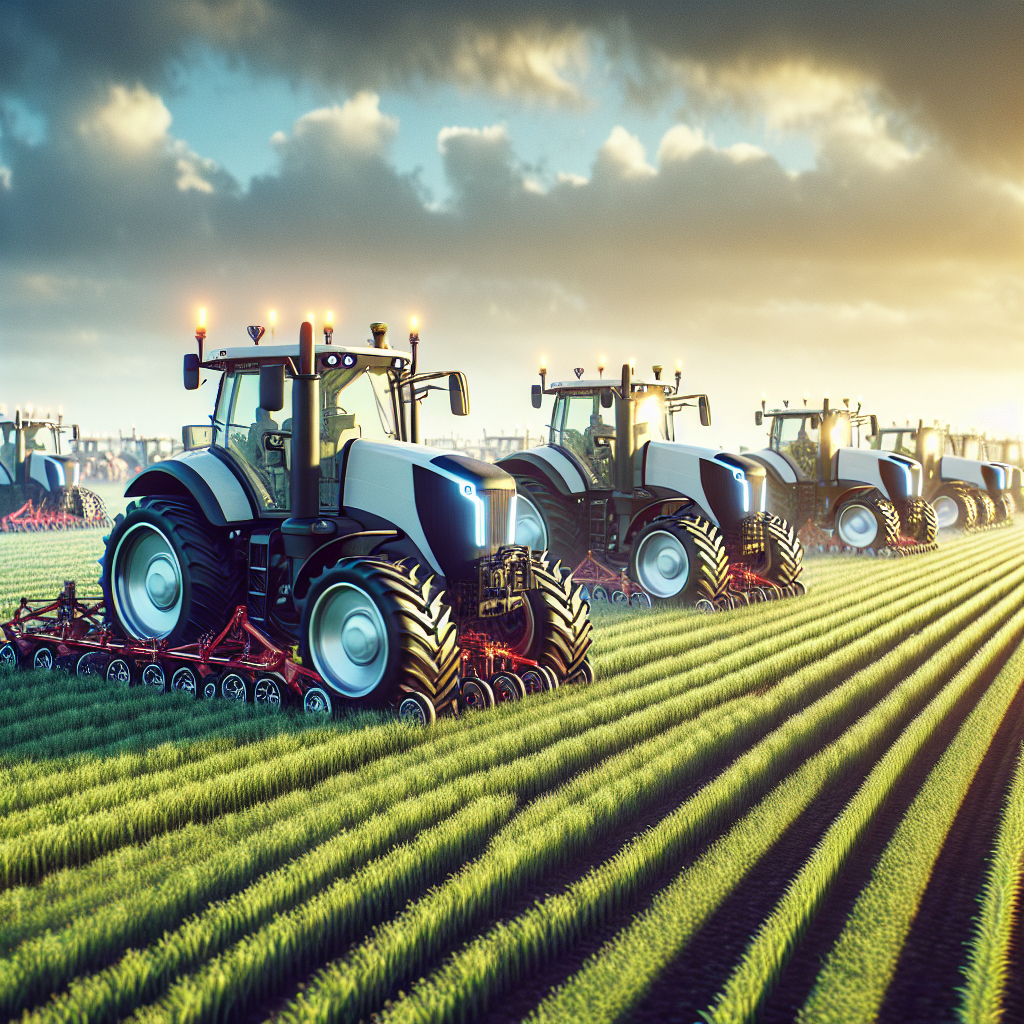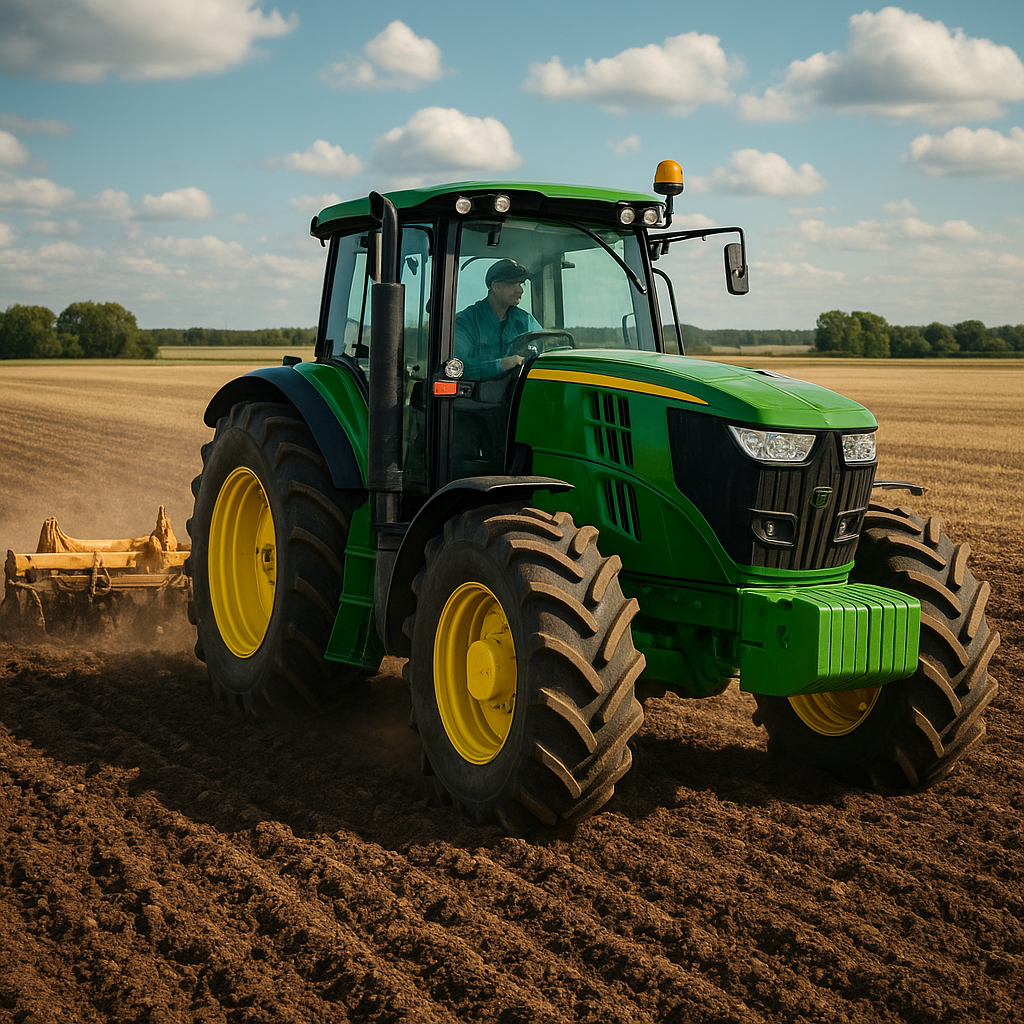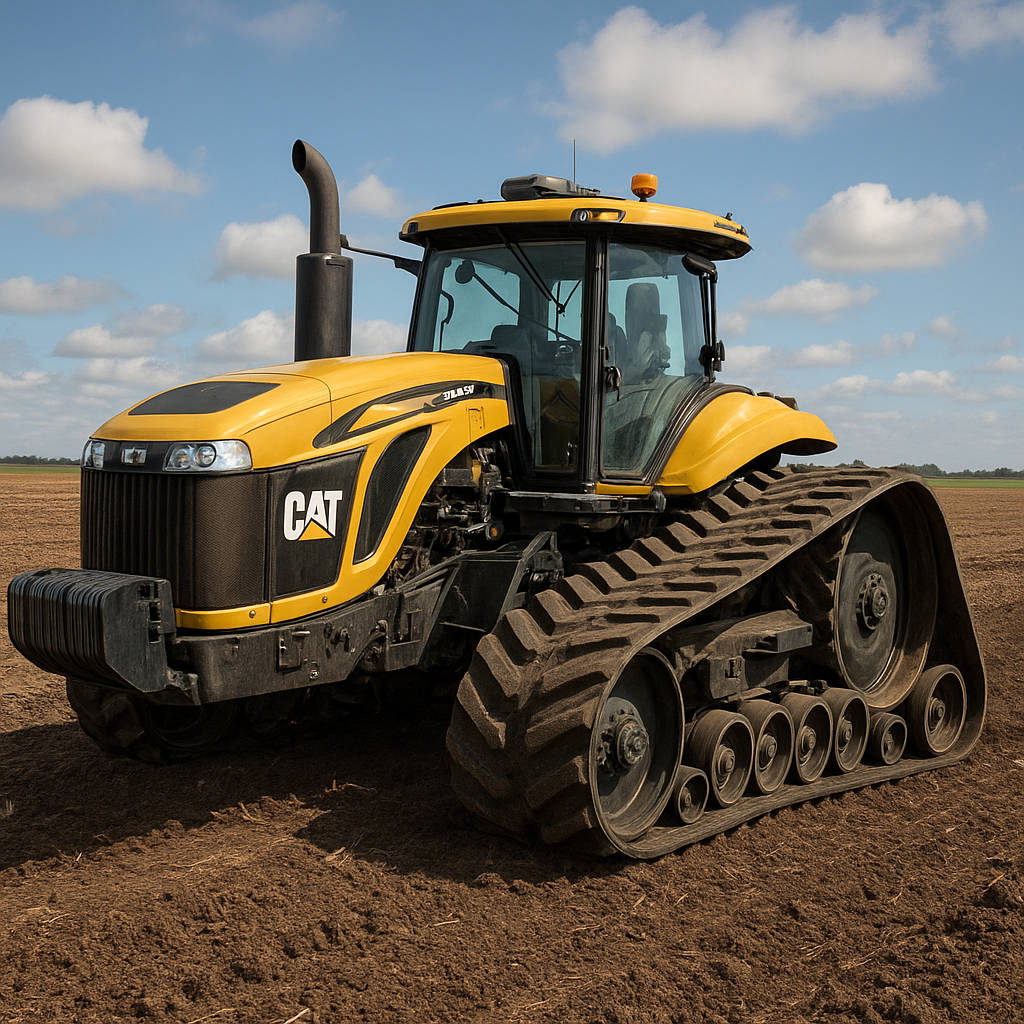Autonomous tractors are revolutionizing modern agriculture by enhancing efficiency, reducing labor costs, and promoting sustainable farming practices. These advanced machines are equipped with cutting-edge technology that allows them to operate independently, making them a game-changer in the agricultural industry.
Technological Advancements in Autonomous Tractors
The development of autonomous tractors has been driven by significant technological advancements. These tractors are equipped with GPS systems, sensors, and artificial intelligence (AI) that enable them to navigate fields, plant seeds, and harvest crops with minimal human intervention. The integration of these technologies ensures precision farming, which is crucial for optimizing crop yields and reducing waste.
GPS and Navigation Systems
One of the key components of autonomous tractors is the GPS system. This technology allows tractors to navigate fields with pinpoint accuracy, ensuring that every inch of the field is utilized efficiently. The GPS system works in tandem with other sensors to create a detailed map of the field, which the tractor uses to plan its route and operations. This level of precision is particularly beneficial for large-scale farming operations, where even small inefficiencies can lead to significant losses.
Sensors and Data Collection
Autonomous tractors are equipped with a variety of sensors that collect data on soil conditions, crop health, and weather patterns. This data is then analyzed by AI algorithms to make real-time decisions about planting, watering, and harvesting. For example, sensors can detect areas of the field that are too dry and direct the tractor to water those areas, ensuring that crops receive the optimal amount of water. This not only improves crop yields but also conserves water, making farming more sustainable.
Artificial Intelligence and Machine Learning
AI and machine learning play a crucial role in the operation of autonomous tractors. These technologies enable tractors to learn from past experiences and improve their performance over time. For instance, an autonomous tractor can analyze data from previous planting seasons to determine the best planting strategies for the current season. This continuous learning process ensures that the tractor becomes more efficient and effective with each use, ultimately leading to higher crop yields and lower operational costs.
Benefits of Autonomous Tractors in Agriculture
The adoption of autonomous tractors offers numerous benefits to the agricultural industry. These benefits include increased efficiency, reduced labor costs, and improved sustainability. By automating various farming tasks, autonomous tractors allow farmers to focus on other important aspects of their operations, such as crop management and market analysis.
Increased Efficiency
Autonomous tractors significantly increase the efficiency of farming operations. These machines can work around the clock, without the need for breaks or rest, ensuring that tasks are completed in a timely manner. Additionally, the precision offered by GPS and sensor technology ensures that resources such as seeds, water, and fertilizers are used efficiently, reducing waste and maximizing crop yields.
Reduced Labor Costs
Labor costs are a major expense for farmers, particularly during peak seasons such as planting and harvesting. Autonomous tractors reduce the need for manual labor, allowing farmers to save on labor costs. This is particularly beneficial in regions where there is a shortage of skilled labor or where labor costs are high. By reducing the reliance on manual labor, autonomous tractors also help to mitigate the risks associated with labor shortages and fluctuations in labor costs.
Improved Sustainability
Sustainability is a key concern in modern agriculture, and autonomous tractors play a crucial role in promoting sustainable farming practices. By using resources more efficiently and reducing waste, these machines help to minimize the environmental impact of farming. Additionally, the data collected by sensors can be used to implement precision farming techniques, such as targeted fertilization and irrigation, which further enhance sustainability. This not only benefits the environment but also helps farmers to comply with increasingly stringent environmental regulations.
Challenges and Future Prospects
While autonomous tractors offer numerous benefits, there are also several challenges that need to be addressed. These challenges include the high cost of technology, the need for reliable internet connectivity, and concerns about data security. However, ongoing advancements in technology and increased investment in research and development are expected to address these challenges and pave the way for wider adoption of autonomous tractors in the future.
High Cost of Technology
One of the main barriers to the adoption of autonomous tractors is the high cost of technology. The advanced sensors, GPS systems, and AI algorithms used in these machines are expensive, making them unaffordable for many small and medium-sized farmers. However, as technology continues to evolve and become more affordable, it is expected that the cost of autonomous tractors will decrease, making them accessible to a wider range of farmers.
Need for Reliable Internet Connectivity
Reliable internet connectivity is essential for the operation of autonomous tractors, as these machines rely on real-time data transmission and analysis. In many rural areas, internet connectivity is limited or unreliable, posing a challenge to the adoption of autonomous tractors. Efforts are being made to improve internet infrastructure in rural areas, and advancements in satellite technology are expected to provide more reliable connectivity in the future.
Data Security Concerns
The use of autonomous tractors involves the collection and transmission of large amounts of data, raising concerns about data security and privacy. Farmers need to be assured that their data is secure and that it will not be misused or accessed by unauthorized parties. To address these concerns, manufacturers are investing in robust cybersecurity measures and developing protocols to ensure the safe and secure handling of data.
Conclusion
Autonomous tractors are set to play a pivotal role in the future of agriculture, offering numerous benefits in terms of efficiency, cost savings, and sustainability. While there are challenges to be addressed, ongoing advancements in technology and increased investment in research and development are expected to drive the wider adoption of these machines. As autonomous tractors become more affordable and accessible, they have the potential to transform the agricultural industry, making farming more efficient, sustainable, and profitable.









